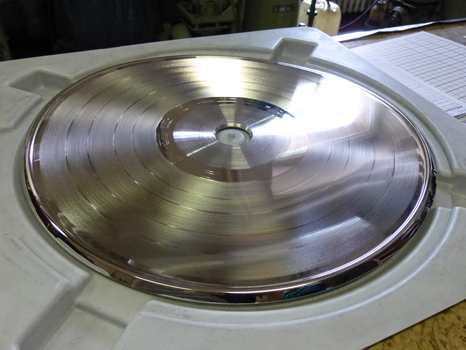David +1 since early I’ve also tended to have been very much a fan of live recordings… many of my favourite performances where captured live and or those not heavily edited.Live recordings can be amazing specially in mono if they leave the recording more or less intact during production. Years ago I remember reading in one of the audio magazines how studio recordings are superior to live ones because they can clean up everything as needed and people bought into that.
There's no rationale for heavy vinyl! If I recall either Hobson or Kasem took credit for it and hailed it as some kind of breakthrough when reality is that they didn't know how to formulate vinyl and came up with a patch. Sadly since characters like HP & Holt came onto the scene high end became a game of gullibility and consumer ignorance so made up BS like 180g vinyl becomes a standard the same as black backgrounds and pinpoint imaging with very few questioning them because these people are looked upon as some kind of mavens.
Quality manufacturing is as much art as it is science and technology and IMO the artists and their art went away when they shut down all the pressing plants in the 80's. I don't know if any of the major labels operate a plant today or is it all farmed out to any 3rd party as long as they can press something and ship it out whatever the quality, and if the consumer continues to buy... Still some of the major labels still seem to produce acceptable product now and then so there's hope. To be clear I'm not down on the industry as a whole only on the so called "audiophile" version of it.
david
If I see a performance was recorded live it factors in on if I’m also attracted to preview it and seem to enjoy the better live recorded performances especially for their potential sense of moments of realism, coherence and connection in performance and aliveness and responsive immediacy.
This is possibly even more rewarding when your speakers and electronics have great coherency in themselves and also when they have less complex but well designed crossovers. I’ve found that in a good two way passive first order crossover coherency can seem to be potentially a great strength and that the coherency of the recording can then come through and be even more influential.
I suppose part of this is the added frisson of players in making music together in the moment but there can often be less processing overall and editing and less challenges in potential latencies which are for me some of the keys towards coherency. On a tangent there is a phenomenon of the fleeting moment in more direct music connection that makes it quite fundamentally a different experience of art to the experience of paintings and sculptures.
If we consider also that experiencing purely live music brings with it an additional set of values and a different inherent framework to do with being fleetingly temporal and in the moment and more immediately connected in that composer-performer-listener relationship at the core. Recording music does change our relationship to it. We can hold onto it and that can then make the purely live experience of music (both acoustic and or amplified) a different kind of priceless.
Graham
Last edited:









